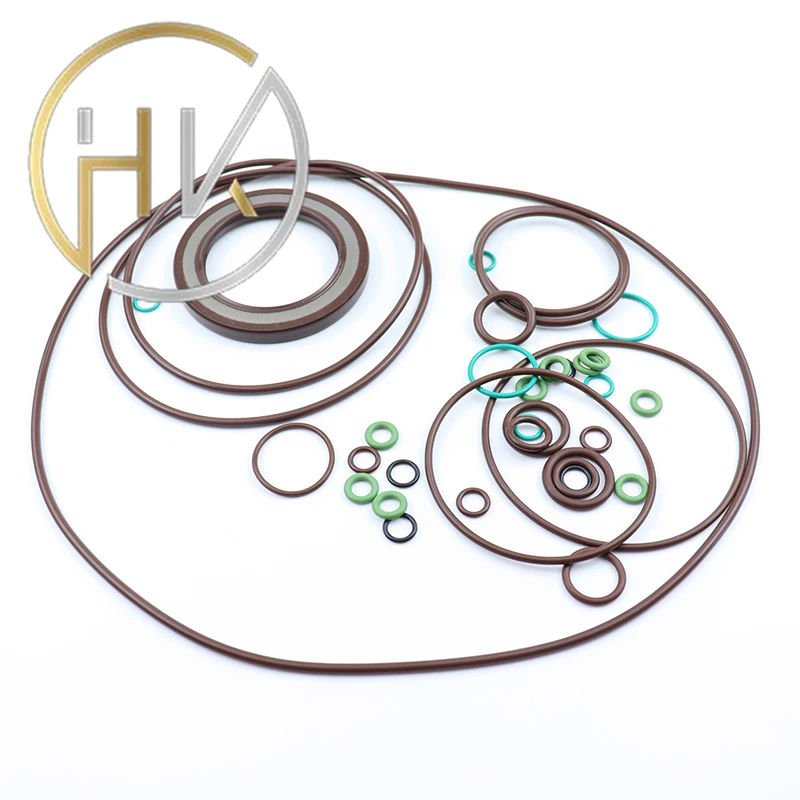செப் . 22, 2024 20:20 Back to list
metal cased oil seals
Understanding Metal Cased Oil Seals
Oil seals play a crucial role in machinery and automotive applications, providing essential protection against the leakage of lubricants and contaminants. Among the various types of oil seals, metal cased oil seals stand out due to their enhanced durability and reliability. This article explores the significance, construction, advantages, and applications of metal cased oil seals.
Construction and Design
Metal cased oil seals are designed with a robust metal casing that provides structural integrity and support. The casing is typically made from materials such as steel or aluminum, which offer superior strength and resistance to environmental stressors. Inside the casing, there is a sealing element made from elastomers like Nitrile or Viton, which creates a tight seal against the rotating shaft or surface.
The design usually incorporates a lip that compresses against the shaft, creating a barrier that prevents fluid leakage while also keeping dirt and debris out. Additionally, some designs may include spring mechanisms that maintain consistent pressure on the sealing surface, further enhancing sealing efficiency.
Advantages of Metal Cased Oil Seals
1. Durability The metal casing provides increased resistance against wear and damage compared to standard rubber seals. This makes them ideal for harsh operating conditions, including high temperatures and exposure to aggressive chemicals.
2. Enhanced Sealing Performance The combination of a metal casing and a rubber lip offers excellent sealing ability. These seals can withstand higher pressure differentials, making them suitable for applications where traditional seals may fail.
metal cased oil seals

3. Chemical Resistance Depending on the materials used in the elastomeric part of the seal, metal cased oil seals can be engineered to resist a wide range of chemicals, ensuring longevity in various environments.
4. Versatile Applications Metal cased oil seals find applications in numerous industries, from automotive and aerospace to heavy machinery and manufacturing. Their ability to perform reliably in diverse conditions makes them a versatile choice.
5. Cost-Effectiveness Although the initial cost may be higher than standard oil seals, the longevity and effectiveness of metal cased seals often result in reduced maintenance and replacement costs over time.
Applications
Industries utilize metal cased oil seals in a variety of applications, including
- Automotive Used in engines, transmissions, and differentials to prevent oil leakage and protect components from contaminants. - Industrial Machinery Essential for ensuring the reliability of rotating shafts in pumps, conveyors, and other equipment by containing lubricants. - Aerospace Critical for sealing components in aircraft systems, where reliability and performance are paramount.
Conclusion
Metal cased oil seals are integral to maintaining the efficiency and longevity of machinery and automotive applications. Their robust construction, combined with excellent sealing capabilities, make them a preferred choice for many industries dealing with challenging operating conditions. As technology advances, the design and materials used in metal cased oil seals continue to evolve, providing even better performance to meet the demands of modern engineering. Understanding their benefits and applications not only helps in selecting the right seal for your needs but also emphasizes the critical role they play in machinery reliability and efficiency.
-
Unlocking the Potential of Hydraulic Systems with Essential Sealing Solutions
NewsAug.06,2025
-
Unleash the Power of Your Hydraulic Systems with Our Premium Seal Kits
NewsAug.06,2025
-
Specialized Hydraulic Seal Kits for Breakers, Pistons, and Presses
NewsAug.06,2025
-
Revitalize Hydraulic Systems with Premium Repair and Seal Kits
NewsAug.06,2025
-
Fortify Your Cylinders with Premium Sealing Solutions
NewsAug.06,2025
-
Elevate Hydraulic System Reliability with Specialized Seal Kits
NewsAug.06,2025
-
TCN Oil Seal Metal Ring Reinforcement for Heavy Machinery
NewsJul.25,2025
Products categories
















